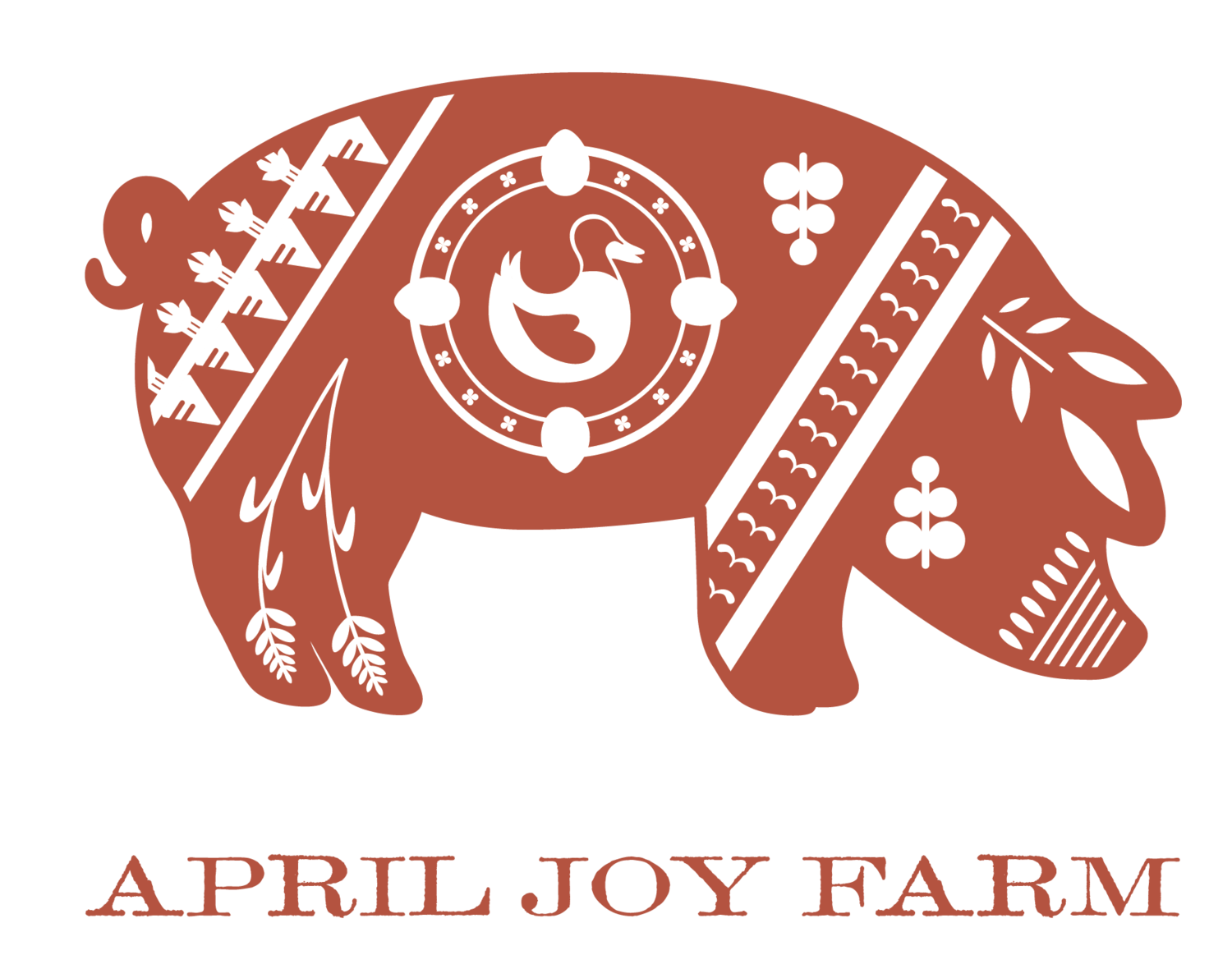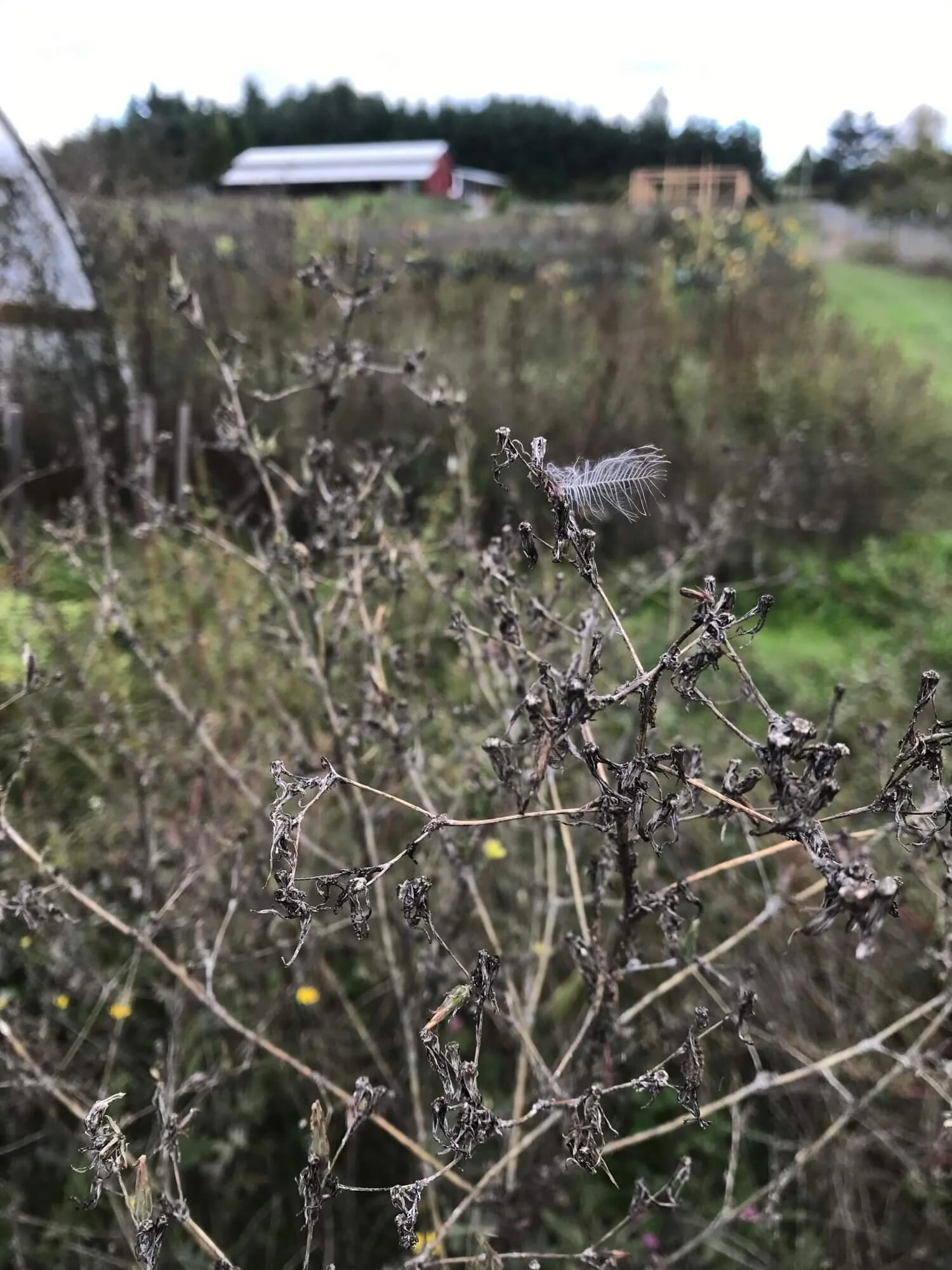Working Winters | Part I
This past week I dug out my trusty wool cap and thick socks, namely because morning chores are becoming a bit frosty! Fall and Spring are what I call the layer seasons because I have learned how important it is to dress in lots of layers. You can start the day in a fleece vest, at lunchtime be down to a light cotton shirt but still sweating, and yet by 3:30 p.m. be reaching for the flannel and wool hat again! I love that farm work is in step with the seasons. As the weather shifts, my workload shifts. It’s not always perfectly aligned mind you- at least until the end of CSA season, a harvest day is a harvest day, and come heat or rain, we must don those layers and work to fulfill our commitments.
Every year as the CSA season winds down, I’m often asked what I “do all winter.” Well, as I’ve explained in past essays, there is actually a lot of farming that gets done in the winter. Winter is high season for the hidden work of agriculture: organizing, repairing, procuring, constructing, and of course, preparing the annual farm marketing, financial, crop, and soil health plans.
But the very FIRST thing Brad and I do after the conclusion of our farming season is to kick off the start of the next season. How we do that might surprise you—we work at our work by literally doing nothing.
Okay, that’s not entirely true. For the first few weeks after our last CSA pickup, we of course still make our twice daily chore rounds, and we keep selling produce to our restaurant accounts.
But other than that, we tackle zero new farm tasks, because it is only through a period of rest that we can restore our energy and muster the strength to do it all again next year.
I'm reminded of one of my favorite sections from farmer Atina Diffley’s book Turn Here Sweet Corn: Organic Farming Works. She very aptly describes what she does the very day after their last harvest and delivery for the year. She writes about taking a shower and scrubbing the whole season off- all the hardship, worries and outstanding lists of work that inevitably remain. The morning after the season is completed, she wakes up and immediately puts on a beautiful, clean dress. Not because she is going anywhere, and not because she loves wearing dresses, but simply because she knows that if she puts on her farm clothes, one thing will lead to another and she’ll be right back on the treadmill. Her clean clothes makes her pause and think twice before kneeling down in the mud to flush out a water line or heading out to change the oil in the tractor.
I know this habit so very well. I may say I’ll take a day off, but then I’ll walk out to the packing shed to get a few vegetables for supper. On the way I’ll notice the gutter is chock full of leaves and needs cleaning out. Or I’ll see from the corner of my eye that pile of tools that needs sorted and sharpened. Or worse yet, I get some bug in my bonnet that right now is great time to dig that trench. Oh, I can say I’ll take time off to rest, but when you live with your work and your work lives with you, there’s not a lot of escaping from the office! This is exactly why Atina and her husband Martin, she writes, commit themselves to a period of rest, or as she describes it, as working wholeheartedly at anything and everything as long as it’s “Not Farming.”
Now, I don’t actually put on a dress, but I absolutely do put on my cleanest “town clothes,” preferably something bright white that has to be dry cleaned. I absolutely take some time at the close of the season to work at “Not Farming.” To Brad and I, this means doing whatever projects or activities around the farm sound like fun, for only about as long as they actually are fun. No pressured-packed deadlines? No imminent weather worries? No monumental loads of anything to be moved, sorted, bundled, or washed by hand? What a luxury!
It is truly by taking this period of rest, by metaphorically putting on my best dress, that I am really able to create space mentally for all that it is to come. "Not Farming" is what I consider the start of the new season, because subconsciously I'm compiling all the experiences I gained from this year to help craft an even better next year. That's a lot easier to do when you're not knee deep in the work itself. Doing things that I normally don’t get to do, taking extra time to observe or think deeply or meander on a long walk with no particular destination, and most especially enjoying the farm exactly as it is-- these are all deeply restorative, necessary acts.
Such 'work days', in fact, are what nourish my creative spirit and fill my cup of joy as I begin to imagine all the delicious possibilities. ~AJ
“Those who contemplate the beauty of the earth find reserves of strength that will endure as long as life lasts.”

